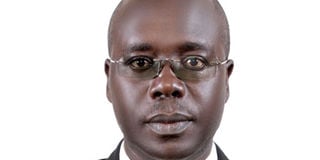Government should not shrink CSO’s civic and political space

Oscar Okech Kanyngareng
What you need to know:
- Dialogue. Government should support and open up CSOs civic and political space rather than shrink it. This is because social, economic and cultural rights as per the UN Conventions of 1967 cannot be enjoyed in isolation.
In the run up to the passing of the age limit bill last year, civil society organisations (CSOs) that were engaged in advocacy around the bill were harassed and muzzled. Worse still, bank accounts of three CSOs: Action Aid, Uhuru Institute for Social Development, and the Great Lakes Institute for Strategic Studies were frozen, rending them unable to operate.
Several leading government officials painted CSOs as meddling in politics, which is supposed to be a no-go area for them. So while the politicians wanted to ‘touch’ the Constitution unchallenged, they did not want CSOs to ‘touch’ politics. Why not?
Now, unlike the clergy, who have come out at the highest levels of archbishop to defend their roles in politics, CSOs have gone silent. They are doing self-censorship out of fear. This has undermined the progress for democratic governance and holistic human development in Uganda.
The government should know that CSOs’ role in politics is more vital to development than it assumes. In fact, CSOs are even engaging less than they should. The CSOs amplify the voices of the voiceless poor and marginalised groups and bring them to the policy table, to the boardrooms and corridors of power, which are beyond the reach of the voiceless.
In the case of a country like Uganda where opposition political parties are weak to be able to aggregate people’s views and develop credible policy options, CSOs step in to complement them. This should not be misunderstood to be politicking. It is practicing the politics of being non-on political. Influencing the political processes with objectivity, facts, fairness and engaging all stakeholders equally.
Like last year, I was involved in training NRM, and other opposition political parties in public policy advocacy. How to turn political party manifestos into effective public policies. No party complained that we were meddling in politics. On the contrary, they all invited us to make follow up into their offices and provide hands-on support in public policy development.
That is one indicator of the vital role of CSOs in politics, as the UNDP human development report 2002, ‘Democracy in a fragmented world’, states ‘Human development…requires a vibrant civil society, one that can play a watchdog role on government and interest groups—and provide alternative forms of political participation…By and large, civil society works to strengthen democratic institutions, not undermine them.’
As such, government should support and open up CSOs civic and political space rather than shrink it. This is because social, economic and cultural rights as per the UN Conventions of 1967 cannot be enjoyed in isolation from political and civic rights. This is because human rights are universal, inalienable, indivisible and interdependent.
Participating in deciding who the leaders should be and how they should govern is equally important because that determines whether you will get a school, health centre or borehole. It is not only about voting them into office.
As the UNDP report states, ‘Politics is as important to successful development as economics… democratic governance can trigger a virtuous cycle of development—as political freedom.
empowers people to press for policies that expand social and economic opportunities, and as open debates help communities shape their priorities’.
So, CSOs cannot build schools, water sources, health centers and markets only and leave politics as a no-go area. They should be allowed to engage and they should also not be struck by fear. In doing so, they should adopt more complex and superior strategies to suit the ever changing political landscape that is shrinking space for CSOs. And make government to not only hear but listen and dialogue.
As former US president John F. Kennedy once said, ‘Let us never negotiate out of fear. But let us never fear to negotiate.’
So, the CSOs should come out strongly like the clergy have done, as freedom is not offered on a silver plate. One has to fight for it.
Oscar Okech Kanyngareng is a political scientist and civil society activist




